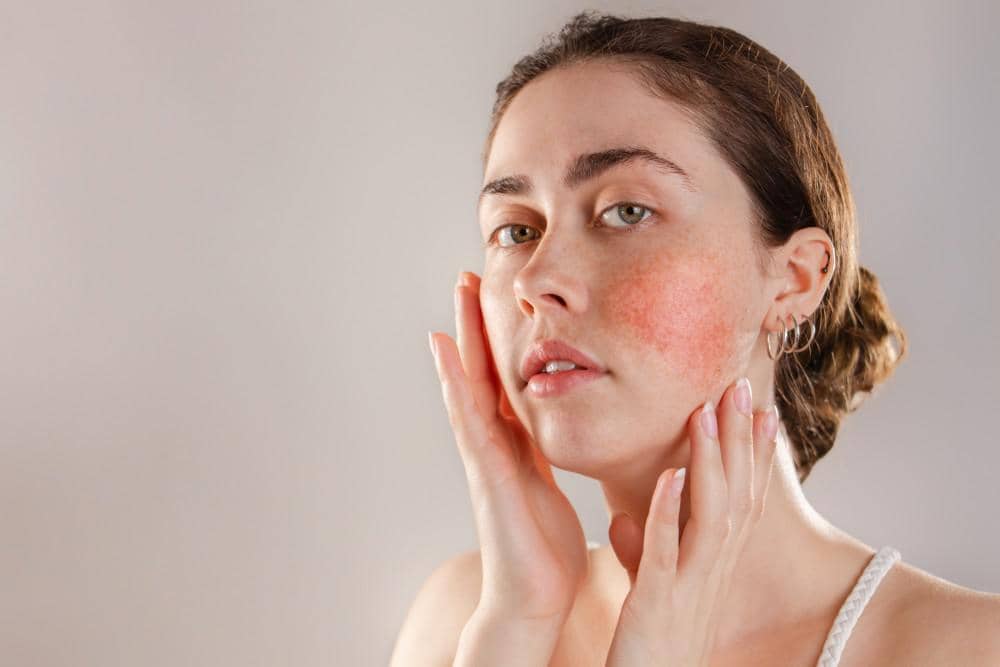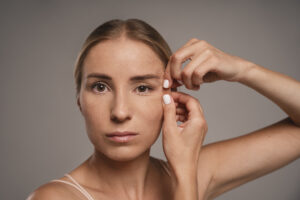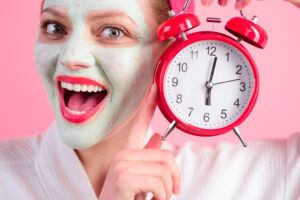Rosacea symptoms can be triggered by several factors: stress, spicy foods, alcohol, heat — even sunlight. But facemasks? Yep, it’s true. Here’s how masks could be worsening your symptoms — and what to do about it.
There’s no doubt that wearing facemasks can help prevent the spread of COVID-19 (and other diseases, too). Unfortunately, for the 16 million Americans with rosacea, mask-wearing comes with an unpleasant side effect: a flare-up of rosacea symptoms.
At Adult and Pediatric Dermatology, our medical team helps patients manage their rosacea symptoms by tailoring every treatment plan on an individual basis. If you’ve been noticing an increase in rosacea symptoms lately, here’s why your mask could be to blame.
Rosacea 101
Rosacea is a chronic skin condition that causes flushing, persistent redness, and pustules or bumps that resemble small acne pimples. You may have burning or stinging sensations and visible veins in the affected area, too. Most symptoms appear on the nose, chin, cheeks, and forehead.
Researchers don’t know for sure what causes rosacea. However, they believe it’s likely due to a combination of genetics and an immune system dysfunction that causes inflammation in your skin.
Rosacea can affect anyone, but it’s more common among women, especially middle-aged women. Currently, there’s no cure for rosacea, but it can be managed with regular medical care.
Masks and rosacea flare-ups
Masks rest close to (or on) your skin, irritating it and causing rosacea to flare. Not surprisingly, the more you wear a mask, the worse your symptoms can be.
In one study, researchers found that during the pandemic, people with rosacea had “significantly worsening” symptoms as a result of wearing masks for prolonged periods, such as during the workday. Specifically, they found that flushing and persistent redness, two hallmark symptoms of rosacea, increased significantly. Patients and doctors both reported an increase in the severity of rosacea symptoms since mask requirements began.
Also alarming: The same study found that as rosacea symptoms worsened, patients also reported a decline in their quality of life, indicating that the link between masks and rosacea has an emotional component, as well.
Another survey found that since the start of the pandemic:
- 63% of rosacea patients reported a mask-related increase in symptoms
- 40% avoid going out to decrease “mask time”
- More than half wear masks more often to hide their symptoms
Ironically, wearing masks to hide rosacea symptoms increases the time you’re wearing a mask, which can actually make your symptoms worse.
Calming the symptoms
The first step in relieving symptoms and preventing flare-ups is simple: Schedule an office visit to have your treatment adjusted. Our team can guide your therapy, prescribing new medications, increasing the dose of your current medications, and suggesting lifestyle changes that can help.
It’s also essential to change your mask regularly and wash reusable masks on a regular basis to eliminate germs and irritants in the mask fibers. Spending more time outdoors where you can skip the mask can also help.
And of course, since stress is a major trigger for many people with rosacea, it’s even more important during the pandemic to do all you can to manage your anxiety. That might mean taking up yoga, meditation, mindful breathing, or simply making time for yourself every day.
Custom care for your rosacea symptoms
Trained at top-ranked medical institutions, like Johns Hopkins University, New York University (NYU), New York Medical College, and Adelphi University, our team is ready to help you manage your rosacea symptoms with a treatment plan designed just for you.
At our state-of-the-art facility in the Forest Hills neighborhood of Queens, New York, our efficient scheduling system ensures you never have to wait long for an appointment. To learn more about rosacea treatment, call 315-860-1185 or book an appointment online with our team today.







